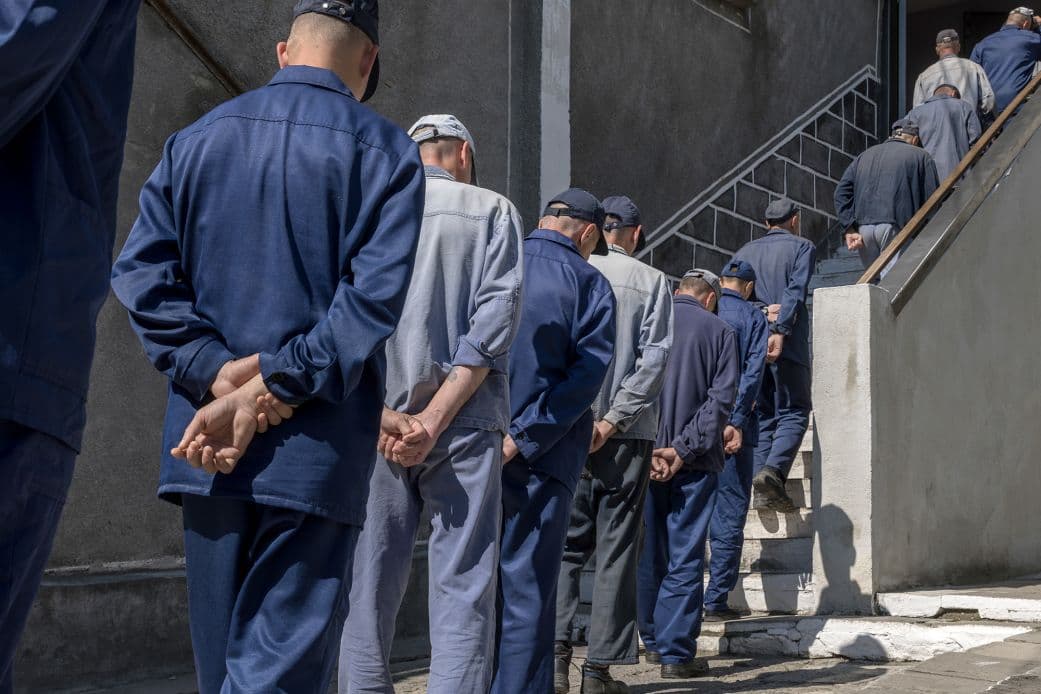We're loading the full news article for you. This includes the article content, images, author information, and related articles.
Driven by dire economic prospects and the allure of high salaries, hundreds of Kenyans, including former soldiers, are being recruited to fight for Russia in Ukraine, often through deceptive means, prompting a diplomatic crisis for Nairobi.

NAIROBI, Kenya - A growing number of Kenyans are trading low-paying jobs at home and abroad for the perilous frontlines of the Russia-Ukraine war, lured by promises of substantial salaries that dwarf their local earning potential. On Wednesday, November 12, 2025, Kenya's Foreign Affairs Cabinet Secretary, Musalia Mudavadi, confirmed that over 200 Kenyan nationals are believed to be fighting for Russia, a revelation that has cast a harsh spotlight on the stark economic realities facing many citizens.
The recruitment of Kenyans into the Russian military is often shrouded in deception, with many individuals reportedly being misled by recruitment agencies. Investigations have revealed that some Kenyans were promised non-combat roles, such as drone assembly and handling chemicals, only to find themselves on the battlefield. In September 2025, a police raid on an apartment in Athi River, on the outskirts of Nairobi, led to the rescue of 21 individuals who were allegedly being prepared for deployment. One suspect, Edward Kamau Gituku, was arrested in connection with a suspected human trafficking ring that lured Kenyans with the promise of legal work in Russia before sending them to the front.
The financial incentive is a powerful motivator. With a youth unemployment rate of 11.93% in 2024, and many struggling with low wages, the salaries offered by the Russian military are a significant draw. The average monthly income for many Kenyans is around KSh 20,123, while some reports indicate that recruits for the Russian army are promised monthly salaries of up to KSh 300,000, with additional commissions. One former General Service Unit (GSU) officer, identified as Kevin, told the Nation newspaper that he now earns KSh 316,000 a month in a non-combat role for the Russian army, a figure nearly triple his previous salary.
The stories of those who have been recruited paint a picture of both desperation and deception. Evans Kibet, a former athlete, was captured by Ukrainian forces in September 2025. He claimed he traveled to Russia as a tourist and was then tricked into signing a military contract written in Russian, a language he did not understand. His passport and phone were confiscated, and he was sent to a military camp with minimal training before being deployed to the front. His case, which gained international attention, prompted the Kenyan government to launch a formal investigation into the trafficking of its citizens.
The Kenyan government has been actively engaging with both Russian and Ukrainian authorities to address the situation. President William Ruto has spoken with his Ukrainian counterpart, Volodymyr Zelensky, to request the release of any Kenyan prisoners of war. The Kenyan embassy in Moscow has documented cases of injured nationals and is working to repatriate those who have been rescued or have escaped. However, the recruitment networks are reportedly still active in both Kenya and Russia. Two Nairobi-based recruitment agencies, Shepard Talent and Global Face Recruiting Agency, have been named in connection with facilitating travel for some of these individuals.
The enlistment of Kenyans in a foreign war raises significant legal questions. Under Section 68 of Kenya's Penal Code, it is illegal for a Kenyan citizen to accept a commission or engagement in the military forces of a foreign state without the written authority of the President. The Kenya Defence Forces Act also outlines strict regulations regarding military service. Despite this, the enforcement of these laws in the context of voluntary or deceptive recruitment remains a complex issue. The Kenyan government has stated that while voluntary enlistment may be a nuanced legal area, any form of deception in recruitment is a criminal offense.
Kenya has officially maintained a neutral stance on the Russia-Ukraine conflict, advocating for a diplomatic solution in line with the UN Charter. However, the presence of its citizens on the frontlines has drawn the country into the complex geopolitics of the war. The situation presents a delicate diplomatic challenge for Nairobi as it seeks to protect its citizens while navigating its relationship with Moscow. The government has committed to signing a formal labor agreement with Russia to create legitimate job opportunities and prevent such exploitation in the future.
The war in Ukraine has also had a significant indirect impact on Kenya's economy, disrupting global supply chains and increasing the cost of essential goods like fuel and fertilizer. The phenomenon of Kenyans fighting in a distant war is a stark illustration of the interconnectedness of global conflicts and the domestic economic pressures that can push individuals to take extreme risks in search of a better life.
Keep the conversation in one place—threads here stay linked to the story and in the forums.
Sign in to start a discussion
Start a conversation about this story and keep it linked here.
Other hot threads
E-sports and Gaming Community in Kenya
Active 9 months ago
The Role of Technology in Modern Agriculture (AgriTech)
Active 9 months ago
Popular Recreational Activities Across Counties
Active 9 months ago
Investing in Youth Sports Development Programs
Active 9 months ago